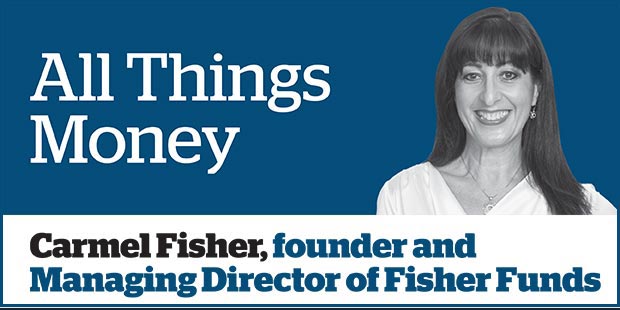I remember inflation and deflation as among the easiest topics to comprehend in my Economics class. Inflation occurs when the prices of goods and services rise; deflation when prices fall.
Because the prices of some goods might be rising while others are falling, economists lump a whole lot of goods together to determine the level of inflation overall, known as the Consumer Price Index (CPI).
We were taught inflation is generally bad because if prices keep rising, people stop buying; deflation is not great either because if prices keep falling, people stop buying (because they can buy better later).
Inflation and deflation have been attention-grabbing concepts in recent years, with few central bankers managing to get through a speech without uttering one of these two important words. What I have found interesting is how these two concepts have morphed since my time at university - there are now different sorts of inflation and deflation and some are embraced more than others.
Just as we now have good fats and bad fats, it seems some inflation is good and some is not and deflation can actually be okay depending on what caused it.
While deflation or falling prices may strike we citizens as cause for celebration, economists generally consider it undesirable because it can kick off a downward spiral where consumers defer consumption. That reduces economic activity and forces companies to further drop prices and lay off workers, leading to even lower prices.
Central banks and politicians have doggedly pursued policies to avoid deflation since the global financial crisis, one even promising to do "whatever it takes" to stop prices, and therefore economic activity, falling.
You can imagine the reaction, therefore, when the recent US CPI for December showed prices had fallen, with the drop the largest since the recession of 2008. Meanwhile, in a less surprising but just as worrying announcement, European prices fell for the first time on record, indicating the Eurozone was in deflationary mode.
But one CPI number in Europe does not a deflation calamity make, particularly when skewed significantly by falling energy prices (down 6 per cent year-on-year in December alone). While headlines initially trumpeted the awful deflation news, the hyperventilation calmed after a while as economists conceded maybe a little bit of deflation wasn't all that bad for Europe - as consumers would benefit from lower energy prices and maybe be able to spend or save more.
As for the deflationary spike in the US, it was intriguing to read a Wall Street Journal reporter's statement: "Among many economists and central bankers, there is a widespread belief that falling prices by themselves don't constitute deflation". Excuse me?
He then clarified by saying that, for it to be "chronic" deflation (cunningly introducing a new classification), consumers and businesses "have to cut back on spending because they expect prices to fall further - the outcome being a decline in output and employment that pushes prices even lower."
A similar re-definition of inflation has occurred; despite decades of economic evidence to the contrary, governments and bankers now believe inflation is a desirable thing. They argue that, if prices don't rise every year by around 2 per cent, consumers won't spend, firms won't hire and economies will slip into a deflationary spiral. This is contrary to my university teachings and the economic law of demand and supply that says demand goes up when prices fall.
Maybe things are different now and inflation and deflation should be thought of in degrees - moderate is good and anything more than say 3 per cent is bad? The market's reaction to price movements seems to depend on what else is happening at the time, making it very difficult to know how to anticipate and then respond.
I prefer the old way of thinking which was pretty easy to understand. When prices fall, I'm happy because I can buy more; when prices rise, well, I find something else to do with my money or wait for them to fall again.
Because at some point they will.

